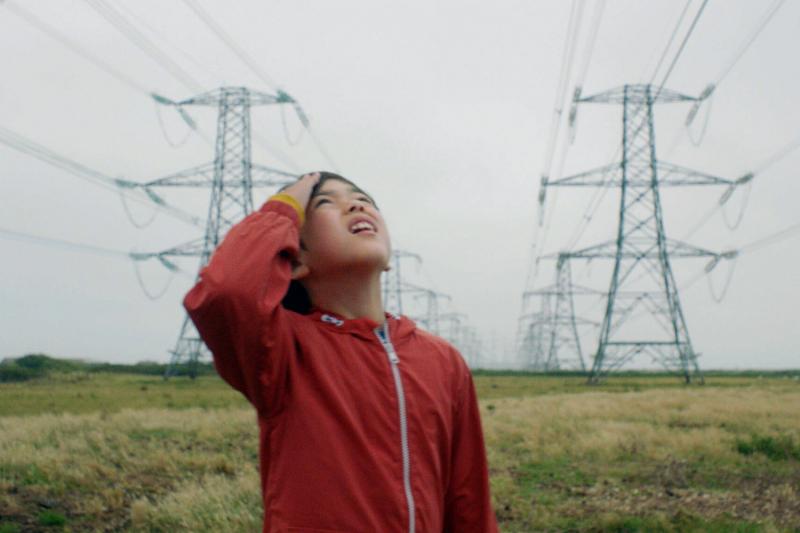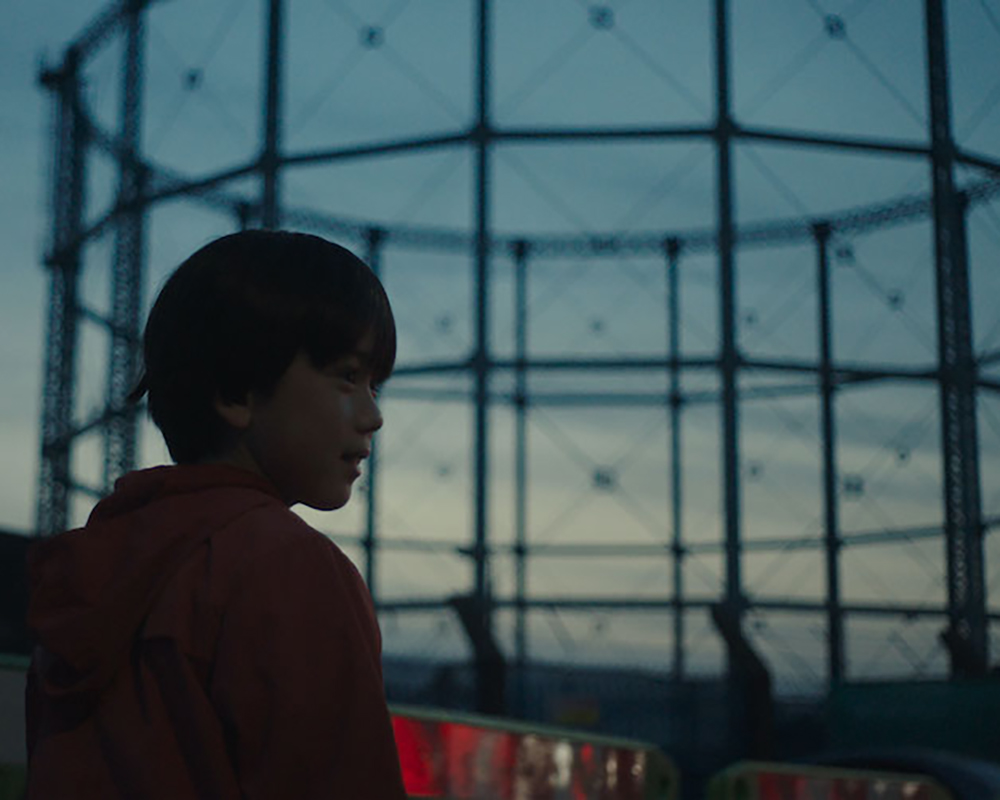The Reason I Jump review - compelling and controversial | reviews, news & interviews
The Reason I Jump review - compelling and controversial
The Reason I Jump review - compelling and controversial
Director Jerry Rothwell explores the lives of four non-speaking autistic people

Back in 2017, a non-speaking autistic teen, Naoki Higashida wrote and published The Reason I Jump. He hoped it would offer some insight into the minds of people with autism. The book was subsequently translated by Keiko Yoshida and her husband, Cloud Atlas author David Mitchell.
The book was a publishing sensation featured on US talk shows, and seemed to herald a new day for how we understand neurodiversity. In the simplest terms it argues that, trapped beneath an autistic exterior, lies a rich, emotionally complex interior that can be unlocked.
As much as it drew praise, the book was also met with an equal amount of scepticism and scorn. Some argued that Higashida’s mother, along with Yoshida and Mitchell who are also parents to a child with autism, have inserted their own ideas into the text. Other critics have challenged the method by which Higashida wrote the text – an alphabetic grid that he would point at.

It is clear which side of the argument director Jerry Rothwell stands on. His documentary blends Higashida’s words with the cinematic medium to offer a visually compelling account of the ideas laid out in the book.
Using the biographical text as a primer, Rothwell focuses on five young, non-verbal adults with autism from across the globe. Despite outward appearances, the director portrays a set of emotionally complex, rich inner lives that can be communicated to others when given the right tools.
Cut with shots of Jim Fujiwara, an autistic Japanese teen who plays Higashida (pictured above and main picture), and narrated from Jordan O'Donegan, this is a compelling film, beautifully shot by Ruben Woodin Dechamps, with a captivating score from Nainita Desai.
The ideas of the book are refracted through the real world, with Rothwell offering a visually arresting, sonically rich experience that immerses the audience with a sense of what it means to be autistic, albeit with inevitable limitations.
Higashida, and indeed Rothwell, make no claim that the experiences shown represent the entire spectrum of autism. Their aim is to simply open the door to a new perception of neurodivergent experience. How successful is Rothwell in providing a realistic insight into this world? We are left to take it at face value that Higashida’s words reflect, at least in part, what it means to live with autism. Nevertheless, whilst compellingly represented, there is little to no critique of Higadashi’s arguments with anything resembling scientific rigour.
However, Rothwell’s film makes no claims of absolute truth. His and Higashida’s work asks us to shift our perspective and embrace a different approach. For some it will be a leap too far, but there’s no doubting the sincerity of this beautifully constructed documentary.
rating
Share this article
The future of Arts Journalism
You can stop theartsdesk.com closing!
We urgently need financing to survive. Our fundraising drive has thus far raised £49,000 but we need to reach £100,000 or we will be forced to close. Please contribute here: https://gofund.me/c3f6033d
And if you can forward this information to anyone who might assist, we’d be grateful.

Subscribe to theartsdesk.com
Thank you for continuing to read our work on theartsdesk.com. For unlimited access to every article in its entirety, including our archive of more than 15,000 pieces, we're asking for £5 per month or £40 per year. We feel it's a very good deal, and hope you do too.
To take a subscription now simply click here.
And if you're looking for that extra gift for a friend or family member, why not treat them to a theartsdesk.com gift subscription?
more Film
 Honey Don’t! review - film noir in the bright sun
A Coen brother with a blood-simple gumshoe caper
Honey Don’t! review - film noir in the bright sun
A Coen brother with a blood-simple gumshoe caper
 The Courageous review - Ophélia Kolb excels as a single mother on the edge
Jasmin Gordon's directorial debut features strong performances but leaves too much unexplained
The Courageous review - Ophélia Kolb excels as a single mother on the edge
Jasmin Gordon's directorial debut features strong performances but leaves too much unexplained
 Blu-ray: The Graduate
Post #MeToo, can Mike Nichols' second feature still lay claim to Classic Film status?
Blu-ray: The Graduate
Post #MeToo, can Mike Nichols' second feature still lay claim to Classic Film status?
 Little Trouble Girls review - masterful debut breathes new life into a girl's sexual awakening
Urska Dukic's study of a confused Catholic teenager is exquisitely realised
Little Trouble Girls review - masterful debut breathes new life into a girl's sexual awakening
Urska Dukic's study of a confused Catholic teenager is exquisitely realised
 Young Mothers review - the Dardennes explore teenage motherhood in compelling drama
Life after birth: five young mothers in Liège struggle to provide for their babies
Young Mothers review - the Dardennes explore teenage motherhood in compelling drama
Life after birth: five young mothers in Liège struggle to provide for their babies
 Blu-ray: Finis Terrae
Bleak but compelling semi-documentary, filmed on location in Brittany
Blu-ray: Finis Terrae
Bleak but compelling semi-documentary, filmed on location in Brittany
 Oslo Stories Trilogy: Sex review - sexual identity slips, hurts and heals
A quietly visionary series concludes with two chimney sweeps' awkward sexual liberation
Oslo Stories Trilogy: Sex review - sexual identity slips, hurts and heals
A quietly visionary series concludes with two chimney sweeps' awkward sexual liberation
 Sorry, Baby review - the healing power of friendship in the aftermath of sexual assault
Eva Victor writes, directs and stars in their endearing debut feature
Sorry, Baby review - the healing power of friendship in the aftermath of sexual assault
Eva Victor writes, directs and stars in their endearing debut feature
 Blu-ray: Who Wants to Kill Jessie?
Fast-paced and visually inventive Czech comedy
Blu-ray: Who Wants to Kill Jessie?
Fast-paced and visually inventive Czech comedy
 Oslo Stories Trilogy: Love review - freed love
Gay cruising offers straight female lessons in a heady ode to urban connection
Oslo Stories Trilogy: Love review - freed love
Gay cruising offers straight female lessons in a heady ode to urban connection
 Beating Hearts review - kiss kiss, slam slam
Romance and clobberings in a so-so French melodrama
Beating Hearts review - kiss kiss, slam slam
Romance and clobberings in a so-so French melodrama

Add comment